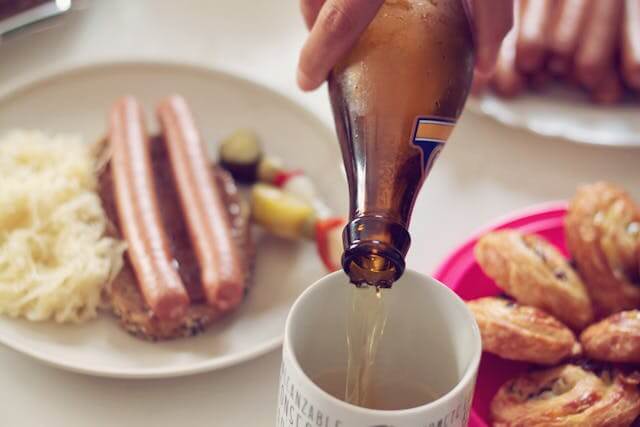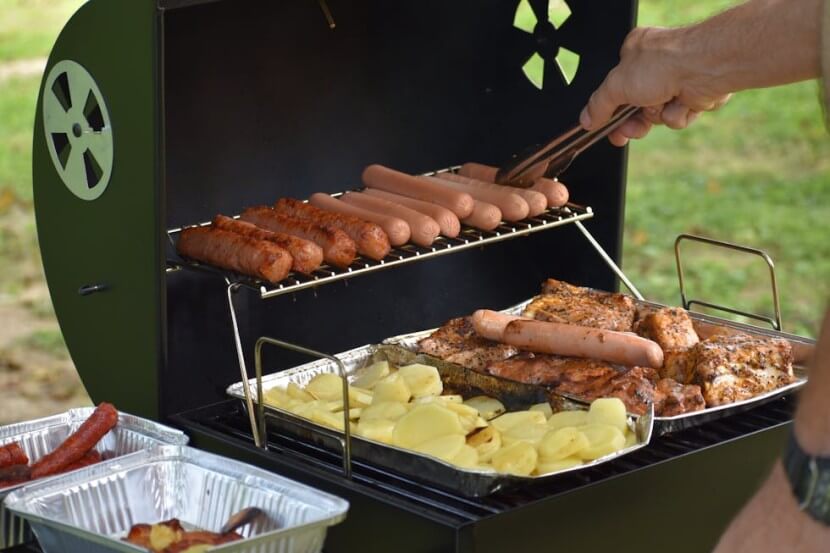| Vocab |
German Example Sentence |
English Translation |
| das Essen |
Das Essen in diesem Restaurant ist sehr lecker. |
The food in this restaurant is very tasty. |
| trinken |
Ich trinke jeden Morgen Kaffee. |
I drink coffee every morning. |
| der Apfel |
Ich esse jeden Tag einen Apfel. |
I eat an apple every day. |
| die Banane |
Die Banane ist sehr süß. |
The banana is very sweet. |
| die Orange |
Möchtest du eine Orange? |
Would you like an orange? |
| das Brot |
Wir haben frisches Brot gekauft. |
We bought fresh bread. |
| die Butter |
Kannst du mir die Butter reichen? |
Can you pass me the butter? |
| der Käse |
Ich mag Käse auf meinem Brot. |
I like cheese on my bread. |
| die Milch |
Die Milch ist im Kühlschrank. |
The milk is in the fridge. |
| der Saft |
Ich trinke gern Orangensaft. |
I like to drink orange juice. |
| das Wasser |
Wasser ist wichtig für die Gesundheit. |
Water is important for health. |
| der Kaffee |
Der Kaffee ist noch heiß. |
The coffee is still hot. |
| der Tee |
Trinken Sie Tee oder Kaffee? |
Do you drink tea or coffee? |
| die Schokolade |
Kinder lieben Schokolade. |
Children love chocolate. |
| der Kuchen |
Der Kuchen ist selbstgebacken. |
The cake is homemade. |
| die Suppe |
Die Suppe ist sehr heiß. |
The soup is very hot. |
| essen |
Ich esse gern Nudeln. |
I like to eat pasta. |
| das Getränk |
Was ist dein Lieblingsgetränk? |
What is your favorite drink? |
| das Fleisch |
Ich esse kein Fleisch. |
I don’t eat meat. |
| der Fisch |
Der Fisch ist frisch gefangen. |
The fish is freshly caught. |
| das Gemüse |
Gemüse ist gesund. |
Vegetables are healthy. |
| die Kartoffel |
Kartoffeln sind ein Grundnahrungsmittel. |
Potatoes are a staple food. |
| der Reis |
Ich koche heute Reis. |
I’m cooking rice today. |
| die Nudeln |
Nudeln sind mein Lieblingsessen. |
Noodles are my favorite food. |
| das Ei |
Das Ei ist hart gekocht. |
The egg is hard-boiled. |
| das Frühstück |
Das Frühstück ist die wichtigste Mahlzeit des Tages. |
Breakfast is the most important meal of the day. |
| das Mittagessen |
Um zwölf Uhr gibt es Mittagessen. |
Lunch is at twelve o’clock. |
| das Abendessen |
Wir essen um acht Uhr Abendessen. |
We have dinner at eight o’clock. |
| kochen |
Tina kocht jeden Tag. |
Tina cooks every day. |


